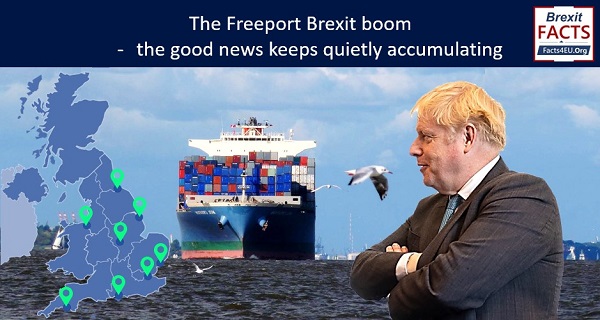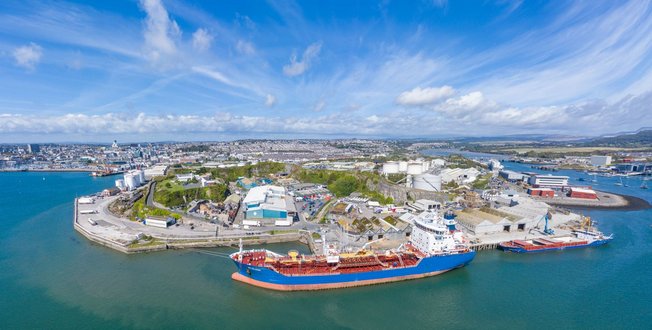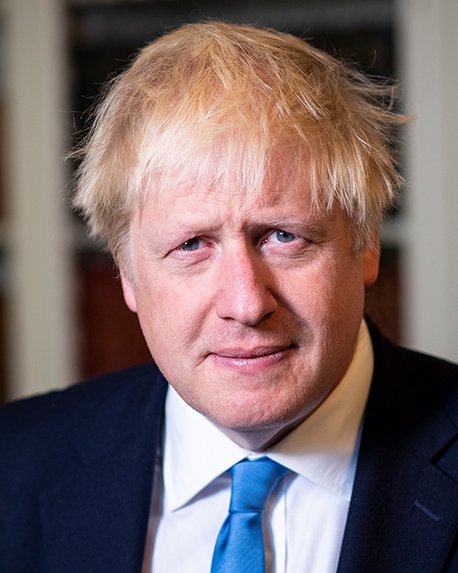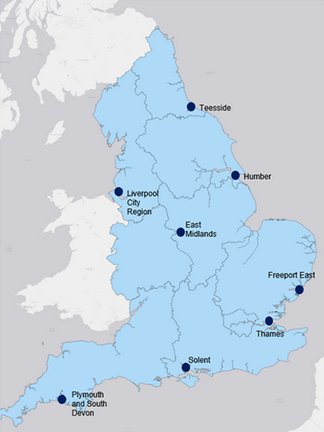The Freeport Brexit boom – the good news keeps quietly accumulating
Majority of English Freeports now up and running, more to come, plus Scotland and Wales

Montage © Facts4EU.Org 2023
Facts4EU.Org summarises the ‘what, where, and why?’ of the Brexit Freeport revolution
Over the past few years Facts4EU has reported on the new Freeport revolution enabled by the UK’s departure from the European Union.
Today we bring readers an update. We also explain why this would not have happened if the UK had remained a member of the EU.
The latest news – majority of English Freeports are now approved
In the last two weeks the Government has made further announcements about Freeports in England, Scotland, and Wales. As ever, Northern Ireland is a separate case as it continues to languish in the EU’s Single Market and Customs Union, still subject to the EU’s bureaucratic state aid controls.
Below, Facts4EU.Org summarises what Freeports are, those which are already operational, how many have been approved, and what the benefits are for UK PLC.
Brexit Facts4EU.Org Summary
Freeports – another Brexit benefit
In this report we address:-
- What are Freeports?
- Could we have done this while still a member of the EU?
- How many does the UK have and how many are we going to have?
- Wales is about to catch up
- What are the benefits of Freeports to the local community and to the country?
[Sources: See bottom of article.]
1. What are Freeports?

Credit: Plymouth Cattewater Harbour Commissioners
Freeports are defined areas where it is possible to import goods (typically at a seaport or airport) without paying any import duty or tax, use them in a manufacturing process, and then export the finished goods. They can extend up to 28 miles beyond the centre.
They have precise geographical boundaries within which companies can operate on preferential tax terms, making inward investment attractive.
Countries around the world have adopted Freeports or other kinds of Special Economic Zones (SEZs), but the UK Government says it has worked in partnership with ports, businesses, local authorities, and wider stakeholders to develop a world-leading Freeports model for England. The Welsh government has now followed the English model, as has the Scottish government – with a small variation.
2. Could we have done this while still a member of the EU?
No, not in the highly competitive way the UK is doing this. The EU Commission allows what are known as “Free Zones”. On the face of it these are similar to the England’s Freeports, but they are highly restrictive in terms of the incentives governments can offer to persuade companies to invest.
Governed by the EU’s draconian ‘state aid’ rules, there are a wide range of regulations and only bureaucrats in Brussels can give approval. Not only that, but in 2019 the EU Parliament said they should be phased out altogether.
3. How many does the UK have and how many are we going to have?
The UK currently has five operational Freeports. In addition, five more Freeports have been agreed, following a tendering process in each region. The information has been released sporadically by the Government and consequently Facts4EU.Org has had to try to collate this. Here is the list as best we understand it currently:-
- Thames including the ports at London Gateway and Tilbury (operational from Nov 2021)
- Teesside including Teesside International Airport, the Port of Middlesbrough and the Port of Hartlepool (operational from Dec 2021)
- Plymouth & South Devon including the Port of Plymouth (operational)
- Solent including the ports of Southampton, Portsmouth and Portsmouth International Port (operational)
- Felixstowe & Harwich including the Port of Felixstowe and Harwich International Port (operational from 10 Jan 2023)
- Humber including parts of Port of Immingham
- Liverpool City Region including the Port of Liverpool (operational from 10 Jan 2023)
- East Midlands Airport
- Inverness and Cromarty Firth Green Freeport (Scotland) – approved Jan 2023
- Forth Green Freeport (Scotland) – approved Jan 2023
4. Wales
In November last year (2022) the bidding process for a Freeport in Wales closed. Three bids are being considered, but because of devolution the approval involves both the UK and Welsh governments. An announcement is expected soon.
“It is fantastic to mark this first step in opening up this tremendous opportunity for the people of Wales to reap the rewards of a Freeport - from Porthcawl to Prestatyn.
“Freeports have the potential to place rocket boosters under communities with their huge power in driving, harnessing and delivering tangible growth - in the same way Wales has with its proud and historic role as the engine room of success for the whole of the United Kingdom.”
- Former Prime Minister the Rt Hon Boris Johnson MP, 01 Sept 2022

Backed by £26 million in UK Government funding, the successful site is expected to become operational in 2023.
5. What are the benefits of Freeports to the local community and to the country?
With their wide geographical spread across the country, it is not surprising that Freeports are touted by the Government as part of the ‘levelling up’ agenda. Combined, the six fully operational Freeports are expected to generate millions of pounds in investment and thousands of highly skilled jobs, boosting local economies and benefitting the whole of the UK.
Levelling Up Minister Dehenna Davison said:
"Freeports are magnets for investments, putting places like the Wirral and Harwich on the global stage and the frontier of innovation.
"With £25 million of seed funding, these Freeports will unlock local expertise and skills to boost key local industries, create jobs and grow our national economy.
"We are maximising the opportunities of leaving the European Union to drive growth, boost innovation and encourage investment in the UK."

Freeports are planned to act as national hubs for global trade and investment, making trade processes more efficient, maximising developments in production and acquiring specialist expertise to secure Freeports’ position within supply chains.
The Government hopes this will create new markets for UK products and services and drive productivity improvements, bringing jobs and investment to Freeport regions for communities that need it most.
Observations
Freeports have potential
The usual suspects make all kinds of arguments against Freeports and also try to claim they were possible under EU membership. This is wholly disingenuous. The EU has allowed Freeports which member countries had before joining, but has strictly controlled them using state aid provisions set by bureaucrats in Brussels.
The simple fact is that the UK is now free to set its own tax rules for all the new Freeports which are being set up. This is now a political decision for the Chancellor and for the Cabinet. And these politicians are accountable to the electorate. When the UK was a member of the EU, British voters could not influence the EU Commission in the decisions it made - and which it continues to make on a weekly basis.
British Freeports can now be administered in the best interests of the United Kingdom rather than in the interests of Brussels and 27 other countries. This is as it should be.
We must get reports like this out there
Reports like the one above take far longer to research, write and produce than many people realise. If they were easy, readers would see other organisations also producing these daily.
However, there’s little point in the Facts4EU.Org team working long hours, seven days-a-week, if we lack the resources to promote them effectively – to the public, to MPs, and to the media. This is where you come in, dear reader.
Facts4EU.Org needs you today
We are a 'not for profit' team (we make a loss) and any payment goes towards the actual work, not plush London offices, lunch or taxi expenses, or other luxuries of some organisations.
We badly need more of our thousands of readers to become members, to support this work. Could this be you, today? It's quick and easy, we give you a choice of two highly secure payment providers, and we do NOT ask you for further support if you pay once. We just hope you keep supporting us. Your membership stays anonymous unless you tell us otherwise.
Please don't assume that other people will keep us going - we don't receive enough to survive and we need your help today. Could you help us? We rely 100% on public contributions from readers like you.
If you believe in a fully-free, independent, and sovereign United Kingdom, please join now by clicking on one of the links below or you can use our Support page here. You will receive a personal, friendly ‘thank you’ from a member of our team within 24 hours. Thank you.
[ Sources: No.10 | Dept for Levelling Up, Housing and Communities | Welsh Government | Plymouth Harbour Commissioners | EU Commission | EU Parliament ] Politicians and journalists can contact us for details, as ever.
Brexit Facts4EU.Org, Sat 21 Jan 2023
Click here to go to our news headlines
Please scroll down to COMMENT on the above article.
And don't forget to actually post your message after you have previewed it!
Since before the EU Referendum, Brexit Facts4EU.Org
has been the most prolific researcher and publisher of Brexit facts in the world.
Supported by MPs, MEPs, & other groups, our work has impact.
We think facts matter. Please donate today, so that we can continue to ensure a clean Brexit is finally delivered.
Paypal Users Only - Choose amount first
Quick One-off
Monthly



Something to say about this? Scroll down for reader comments